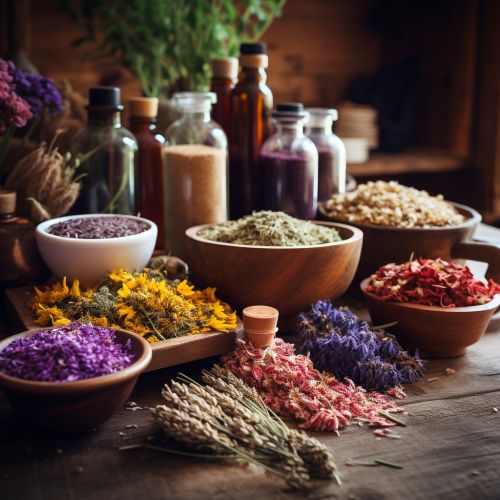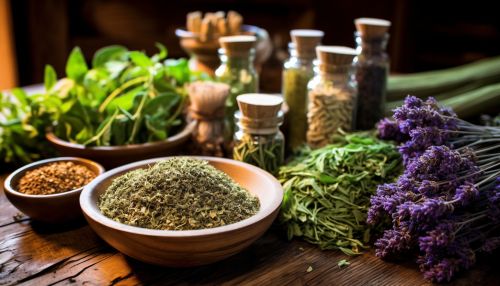Medicinal Herbs
Introduction
Medicinal herbs, also known as herbal medicine, have been used for thousands of years across various cultures worldwide. They are plants whose leaves, stems, roots, or seeds possess therapeutic properties or exert beneficial pharmacological effects on the human body.


History of Medicinal Herbs
The use of medicinal herbs can be traced back to prehistoric times. The earliest recorded evidence of their use comes from ancient Egyptian and Chinese civilizations. Ancient Egyptians documented their knowledge of medicinal plants on papyrus scrolls, while the Chinese compiled a comprehensive herbal pharmacopoeia known as the Shennong Ben Cao Jing, which dates back to around 3000 BC.
Types of Medicinal Herbs
There are thousands of medicinal herbs, each with its unique set of benefits. Some of the most commonly used include:
- Echinacea: This herb is known for its immune-boosting properties and is often used to prevent or treat common colds and flu.
- Ginkgo Biloba: Ginkgo is used to improve memory and cognitive function. It is also used in the treatment of various circulatory disorders.
- St. John's Wort: This herb is commonly used to treat mild to moderate depression and anxiety.
- Turmeric: Turmeric contains curcumin, a compound with potent anti-inflammatory and antioxidant properties.
- Ginger: Ginger is used to treat various types of nausea, including morning sickness and chemotherapy-induced nausea.
Pharmacological Properties of Medicinal Herbs
Medicinal herbs exert their therapeutic effects through various pharmacological properties. These properties are often attributed to the presence of bioactive compounds such as alkaloids, flavonoids, tannins, and terpenes. These compounds interact with various biological targets in the human body, leading to therapeutic effects.
Safety and Efficacy of Medicinal Herbs
While medicinal herbs are generally considered safe, they can interact with conventional medicines and may have side effects. Therefore, it is crucial to consult with a healthcare provider before starting any herbal therapy. The efficacy of medicinal herbs is a topic of ongoing research, with many studies confirming their therapeutic benefits. However, more rigorous clinical trials are needed to establish their safety and efficacy conclusively.
Future of Medicinal Herbs
With the growing interest in natural remedies and holistic health, the future of medicinal herbs looks promising. Advances in technology and research are expected to enhance our understanding of these plants and their therapeutic potential. Furthermore, the integration of medicinal herbs into mainstream healthcare could provide new treatment options for various diseases and conditions.
